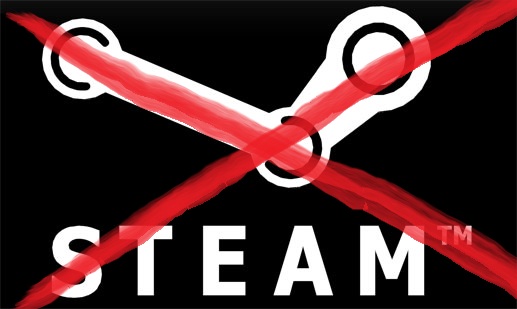
How to fix IBM
Given IBM’s earnings miss last week and the impact it had on company shares I thought rather than just criticizing the company it might make better sense to consolidate my ideas for how to fix IBM. Here they are.
Early in his tenure as CEO, Sam Palmisano made changes that created IBM’s problems today. IBM customers are buying fewer products and services. Revenue has dropped each quarter for the past ten. Sam’s changes alienated IBM customers, many of whom are ending what has been in many cases a multi-decade relationship. No amount of earnings promises, no amount of financial engineering, will fix this problem.

Ginni comes to her senses, but too late for IBM?
This week, of all weeks, with IBM seemingly melting-down, you’d think I’d be writing about it and I have been, just not here. You can read two columns on IBM I published over at forbes.com, here and here. They are first day and second day analyses of IBM’s earnings announcement and sale of its chip division to GlobalFoundries. I could publish them here three days from now but by then nobody will care so instead I’ll just give you the links.
One thing I can do here is consider the way IBM CEO Ginni Rometty is spinning this story. She was all over the news on Monday repudiating the 2015 earnings target set by her predecessor Sam Palmisano and more or less claiming to be a victim -- along with the rest of IBM -- of Sam’s bad management. Well she isn’t a victim. Ginni was an active participant in developing the Death March 2015 strategy. And as CEO -- now CEO and chairman -- it’s laughable to contend, as Ginni apparently does, that she has been somehow bound by Sam’s bad plan.

IBM's Power8 servers are less than meets the eye
Two weeks ago IBM told the IT world it was taking on Intel in the battle for server chips with new Power8 processors incorporating advanced interconnection and GPU technology from NVIDIA. This followed an announcement earlier in the year that Google was using Power8 processors in some of its homemade servers. All this bodes well for IBM’s chip unit, right?
Not so fast.

To stop data theft, pull the plug
Back in the 1980s, when I was the networking editor at InfoWorld, one of my jobs was to write profiles of corporate networks. One of those profiles was of the Adolph Coors Brewing Company of Golden, Colorado, now known as Molson Coors Brewing. I visited the company’s one brewery at the time, interviewed the head of IT and the top network guy, then asked for a copy of the very impressive network map they had on the wall.
"Sorry, we can’t give you that," they said. "It’s private".

Why I have grown to hate steamgames.com
A son of mine, I’m not saying which one, borrowed from my desk a credit card and -- quick like a bunny -- bought over $200 worth of in-game weapons, tools, etc. for the Steam game platform from steamgames.com, which is owned by Valve Corp. Needless to say, the kid is busted, but the more important point for this column is how easily he, for a time, got away with his crime.
I would have thought that vendors like steamgames.com would not want children to be buying game stuff without the consent of their parents, yet they made it so easy -- too easy.

One way (maybe the only way) Yahoo can succeed
Alibaba’s IPO has come and gone and with it Yahoo has lost the role of Alibaba proxy and its shares have begun to slide. Yahoo’s Wall Street honeymoon, if there ever was one, is over, leaving the company trying almost anything it can to avoid sliding into oblivion. Having covered Yahoo continuously since its founding 20 years ago it is clear Y! has little chance of managing its way out of this latest of many crises despite all the associated cash. But -- if it will -- Yahoo could invest its way to even greater success.
Yahoo CEO Marissa Mayer, thinking like Type A CEOs nearly always seem to think, wants to take some of the billions reaped from the Alibaba IPO and dramatically remake her company to compete again with Google , Microsoft , Facebook, and even Apple. It won’t work.

The enemy in HR
Right now, depending who you speak with, there is either a shortage or a glut of IT professionals in the USA. Those who maintain there is a shortage tend to say it can only be eliminated by immigration reform allowing more H1-B visas and green cards. Those who see a glut point to high IT unemployment figures and what looks like pervasive age discrimination. If both views are possible -- and I am beginning to see how they could be -- we can start by blaming the Human Resources (HR) departments at big and even medium-sized companies.
HR does the hiring and firing or at least handles the paperwork for hiring and firing. HR hires headhunters to find IT talent or advertises and finds that talent itself. If you are an IT professional in a company of almost any size that has an HR department, go down there sometime and ask about their professional qualifications. What made them qualified to hire you?

Apple proves that moats are for dummies
As we all know, Apple last week announced two new iPhones, a payment service (ApplePay), and a line of Apple Watches that require iPhones to work. There’s not much I can say about these products that you can’t read somewhere else. They are bigger and better than what preceded them and -- in the case of ApplePay and the AppleWatch -- just different. They are all topnotch products that will stand out in the market and have good chances of being successful. So instead of writing about products we already know about, I’d like to write about moats to protect products from competition.
Moats, as you know, are defensive fortifications typically built to surround castles, making them harder to storm. In order to even get to the castle, first you have to get past the moat which might be filled with water and that water might, in turn, be covered with burning oil.

Mobile carriers are trying to control your texting
Who owns your telephone number? According to Section 251(b) of the Communications Act of 1934, you own your number and can move it to the carrier of your choice. But who owns your texting phone number? It’s the same number, just used for a different purpose. The law says nothing about texting so the major wireless carriers (AT&T, Sprint, T-Mobile, and Verizon) are claiming that number is theirs, not yours, even if you are the one paying a little extra for unlimited texting. And the way they see it, unlimited is clearly limited, with carriers and texting services not offered by the Big Four expected soon to pay cash to reach you.
Those who’ll pay to text you include mobile carriers not in the Big Four led by the largest independent, US Cellular, as well as so-called over-the-top texting service providers that presently offer free texting services. These companies include pinger.com, textplus.com, textnow.com, textme.com, and heywire.com. Service continues for now but the incumbents are threatening to shut it down any day. T-Mobile started trying to impose fees several weeks ago and Sprint, I’m told, will start trying to charge next week.

Apple Watch Edition: Fear and loathing in Rolex-ville
In all the coverage and hype concerning Apple’s event on Tuesday I’d like to concentrate on one easily-overlooked product I feel is by far the most revolutionary of those announced. I am of course talking about the Apple Watch Edition -- Apple’s gold watch.
Where we might expect an Apple Watch to be aimed at competitors like Samsung, LG, or even Sony, the Apple Watch Edition is aimed squarely at Rolex. It is Apple’s first-ever true luxury product.

An economist walks into a bar…
Did you ever see the 1991 Albert Brooks movie Defending Your Life? A movie that clearly could not be made today because it includes neither super heroes nor special effects and isn’t a sequel, it’s about a schmo (Brooks) who dies only to find heaven has an entrance exam of sorts in which you literally defend your life. Well the other day I watched a very good TED talk by my friend Bob Litan in which he defended his entire profession -- economics. I know no braver man.
Few of us would defend our professions. I’m a journalist -- what is there to say about that except that being a Congressman is worse? Yet Bob Litan volunteered for this gig, which he does with remarkable energy for a guy the size of a meerkat.

Home Depot and the smoking zip-zap machine
I was at Home Depot on Sunday, buying flower pots and some lumber to repair the fence where Sadie the Dog has been plotting her escape. Checking-out of the Garden Department I handed my credit card to the cashier, who promptly dragged out an old zip-zap machine (that’s the technical term coined by BankAmeriCard 50 years ago) and took an impression of my card.
"You’ve been hacked," I said.

For future computing, look (as always) to Star Trek
"The step after ubiquity is invisibility," Al Mandel used to say and it’s true. To see what might be The Next Big Thing in personal computing technology, then, let’s try applying that idea to mobile. How do we make mobile technology invisible?
Google is invisible and while the mobile Internet consists of far more than Google it’s a pretty good proxy for back-end processing and data services in general. Google would love for us all to interface completely through its servers for everything. That’s its goal. Given its determination and deep pockets, I’d say Google -- or something like it -- will be a major part of the invisible mobile Internet.

The age of supply, not demand
I had lunch last week with my old friend Aurel Kleinerman, an MD who also runs a Silicon Valley software company called MITEM, which specializes in combining data from disparate systems and networks onto a single desktop.
Had the Obama Administration known about MITEM, linking all those Obamacare health insurance exchanges would have been trivial. Given MITEM’s 500+ corporate and government customers, you’d think the company would have come to the attention of the White House, but no.

The Fed suckered IBM into a failing cloud strategy?
Economist David Stockman, who is probably best known for being President Reagan’s budget director back in the era of voodoo economics, has been particularly outspoken about IBM as a poster child for bad policy on the part of the US Federal Reserve. How this would be isn’t immediately obvious but I think is worth exploring because IBM is far from the only company so afflicted. There’s an important effect here to be understood about corporate motivations and their consequences.
So I’ll begin with a story. Almost 40 years ago there was a study I worked on at Stanford’s Institute for Communication Research having to do with helping farmers in Kentucky be more successful by giving them access to useful government data. The study was sponsored by the United States Department of Agriculture (USDA) and it gave portable computer terminals to farmers along with access to databases at the USDA, National Oceanic and Atmospheric Administration, Department of Commerce, etc. The idea was that with this extra knowledge farmers would be able to better decide what crops to plant, when to plant them, when to harvest them, etc.

